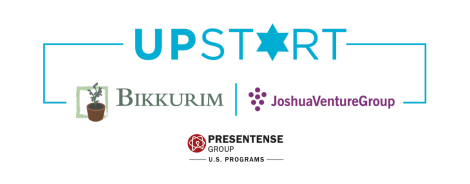By Todd J. Sukol
Today I had the pleasure of attending a luncheon in honor of Joshua Venture Group‘s most recent cohort of talented social entrepreneurs setting out to the change the world through Jewish values and teachings. What an impressive group! What stood out most to me was the way that the two year experience they had with Joshua Venture Group has given them the support — and the tools — to turn their respective bold visions into clear, impactful actions. The degreee to which this group had learned to care for and bring out the best in each other was palpable. As I sat among these inspiring young visionaries, my thoughts turned to my more established colleagues in blue chip Jewish organizations we all know and sometimes love.
 lish. There is a risk in being too hard on the old guard, of course. It is no easy task to remain sustainable and relevant in the face of financial pressures, changing circumstances, a tough labor market and immutable forces of diminishing returns. Twenty years ago I was outraged at what I have come to call “organizational entropy,” the tendency of established nonprofit organizations to slide into an impotent state of self preservation as primary mission, with lofty visions deployed only as fundraising rhetoric and anti-accountability tactics. Today I am no less saddened by the tendency, but I no longer blame individuals. No one goes into this line of work because they yearn for mediocrity. Rather, organizational entropy is a natural condition that necessarily accompanies nonprofit efforts just as greed accompanies commercial enterprise and corruption accompanies government. The trick is not to get angry about the tendency or blame individual actors, but rather to productively seek ways to mitigate the negative forces in order to keep positive efforts on track. I think many nonprofits — large and small — recognize this trend. Some are trying hard to confront it. A few are succeeding.
lish. There is a risk in being too hard on the old guard, of course. It is no easy task to remain sustainable and relevant in the face of financial pressures, changing circumstances, a tough labor market and immutable forces of diminishing returns. Twenty years ago I was outraged at what I have come to call “organizational entropy,” the tendency of established nonprofit organizations to slide into an impotent state of self preservation as primary mission, with lofty visions deployed only as fundraising rhetoric and anti-accountability tactics. Today I am no less saddened by the tendency, but I no longer blame individuals. No one goes into this line of work because they yearn for mediocrity. Rather, organizational entropy is a natural condition that necessarily accompanies nonprofit efforts just as greed accompanies commercial enterprise and corruption accompanies government. The trick is not to get angry about the tendency or blame individual actors, but rather to productively seek ways to mitigate the negative forces in order to keep positive efforts on track. I think many nonprofits — large and small — recognize this trend. Some are trying hard to confront it. A few are succeeding.
What lessons could this newly minted group of Jewish social entrepreneurs teach old time professionals at established Jewish communal organizations that play such important roles in the fabric of American Jewish life? How could the support JVG taught them to give each other be applied to BigOrga? Are there ways we can take care of each others’ neshamas (souls) to keep individuals and organizations vibrant and impactful, even in the face of organizational entropy? Success happens when inspiration coexists with environments of structure, support and accountability. This is what Lisa Lepson and her Joshua Venture Group colleagues have taught today’s young leaders to strive toward. It is time we stop looking at these innovative young leaders with kind eyes that say “awww, isn’t that nice,” and start opening our eyes widely to their wisdom, learning from them as we mentor them — allowing them to show us how to repair what is broken, how to take care of our most precious commodity, each other.



